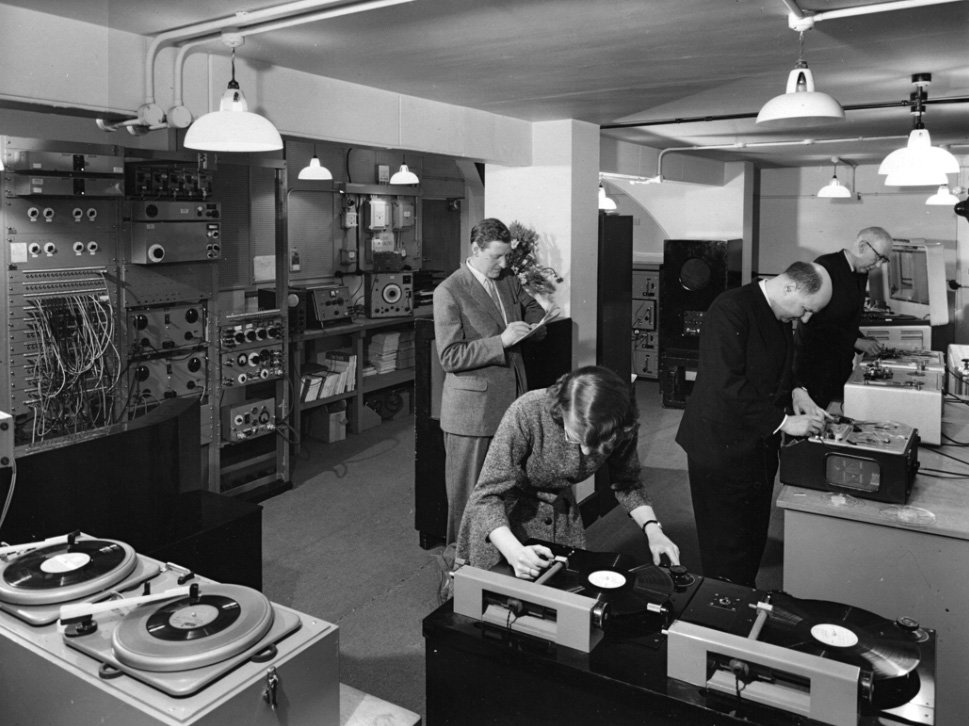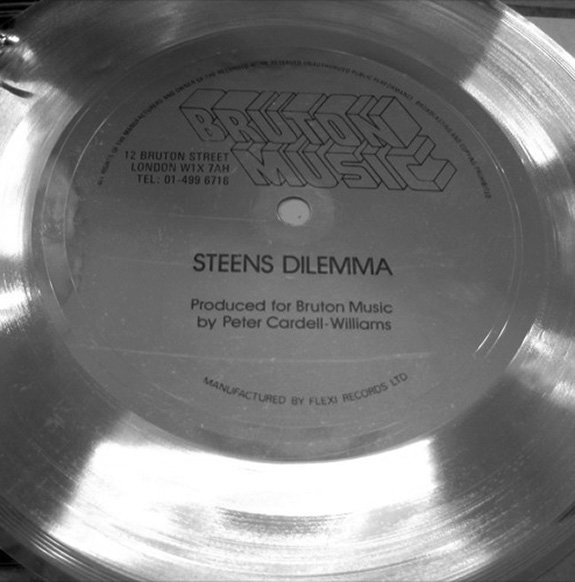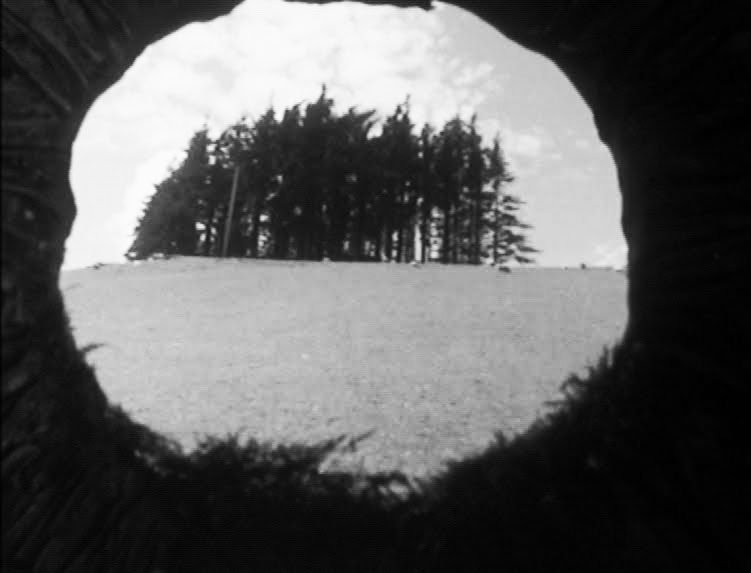Hauntology: The Feeling of Unprecedented Nostalgia
As I write this article, it is 3:33am Eastern Standard Time. The artificial glow from my TV illuminates my bedroom. A YouTube video appropriately titled “ABBA - Dancing Queen (playing over intercom in 1976 empty mall food court)” is playing on my television. My brain launches into thoughts of events that have never taken place, considering the fact that I wasn’t even thought of during the year 1976. The scenery of this reverie consists of me and a few friends dancing around in an empty shopping mall, pizza and Swedish pop/disco group ABBA blasting through the mall speakers. The funny thing is, this sequence that I concocted in my mind wasn’t specifically set in the 70s! It could’ve been in any time frame before I was born or even in the distant future. Since most of us tend to have these conceptualizations, whether they’re about what could’ve happened in the past, a longing for something more in the present, or a certain perception of what the future could hold, this leads me to pose the question: ‘Why do we become nostalgic on account of events that never occurred?”
In 1993, Jacques Derrida released a publication called Spectres of Marx. The novel was the first to introduce the word hauntology which originally referred to certain effects of communism severely burdening Europe including economic war, nuclear weapons, and foreign debt. The book itself touches on the broad topic of the recurrences of culture, philosophy, and politics of the past and how society deals with those recurrences. Years later, in the early 2000s, hauntology took on a new meaning as a genre of music that echoes the arts and aesthetics of yesteryear. Nearly a decade ago, a popular sub genre based on music from the 80s and 90s had emerged on the horizon that would soon take the internet by storm. That enthralling genre is vaporwave.
With musicians incorporating collective mixes of genres such as elevator music, R&B, lofi, chopped & screwed jazz, and 80s synth pop, vaporwave artists seemed to create a new age of music specifically for the purpose of unprecedented nostalgia. Despite being given the title of a “parody genre” during its early stages in the 2010s, the vaporwave genre grew over the decade when hundreds of vaporwave mixes, compilations and 24 hour streams surfaced on YouTube. The bulk of the artwork for these videos is composed of abandoned shopping malls that seem as though they are stuck in time, 80s neon synth waves and its most popular components -- Greco-Roman statues and pillars.
In freelance columnist and specialist in psychology Jaimee Bell‘s article “Nostalgia triggers a reward pathway in our brains, according to science”, she notes that “nostalgia is a sentimentality for the past that is unique to each person, as it can be for a specific period in your life that you have positive associations with or it can be simply about the past in general.” The present day “nostalgic” yearning for more substance in everyday life is overwhelmingly evident in today’s generation. It makes sense that we would look to the past for a grasp of our present and distant future. It leads me to look back at sci-fi films from the 60s and how the creators mixed their present day concepts with their ideas of what the future might have in store. These abstractions included: Books being banned and burned (Fahrenheit 451), apes taking over a futuristic planet (Planet of the Apes), and monoliths connecting the past to the future (2001: A Space Odyssey). Sometimes I wonder if the creators of these films were using a hauntology viewpoint to interpret the possible fate of humanity.
Moreover, in my opinion, this approach could also be applied to the concept of lost futures. The notion of lost futures tends to regard our hungering for specific moments in the future by creating scenarios in our heads that gravitate towards the past, even if we weren’t necessarily around to see it. These formations of personal narratives, whether they happened, or didn’t, can render the role of “nostalgia” in our lives and bring about a sense of reminiscence for what might have been. What could have been. When we listen to a certain song, watch a certain film or take on a certain aesthetic relating to a specific era, our choices can give us a feeling of bliss as they relate to coming times. These choices soothe us and, for most of us, they give us a moment to forget our existential dread.
I’ve honestly never been able to cope with the finality of death. “I still can’t come to terms with the fact that I am actually, definitely going to die one day, as this might lead to the realization that I might as well enjoy my one brief life, and who wants that,” wrote one of my favorite people ever, Melissa Broder in her collection of personal essays, So Sad Today. Time is a fleeting, yet absolutely terrifying thing. We watch our parents grow older as well as ourselves, people we once thought we’d be friends with for the rest of our lives are gone. They’re nothing more than distant memories that we can feel ourselves losing a grip on every single day. It’s as if no matter what, we’re always left eager for more. We get to a point where we know life is ending soon and we can’t stop it. We use something, nostalgia, to hold onto the past. I know that thoughts like these aren’t unique to me personally. Millions of other people on this earth are more than likely thinking the exact same things, which brings into effect the universal intrinsic need for nostalgia.
These rationalizations cause me to observe our current world in 2021. Gen Z and Millennials are on Tik Tok and other social media apps taking it back to the 70s by jamming to Fleetwood Mac, riding around in tricked out Volkswagen vans, and thrifting bell bottoms. At this point in our latest wave of hauntology, I don’t believe that I’m wrong to guess that because a considerable number of people in our generation are so nostalgic for the 70s era, if someone opened up a modern discotheque it wouldn’t fail to get great business. On the other hand, more examples of certain periods that have tugged at the hearts of today’s youth are the jazzy “roaring 20s” Gatsby era, vintage 50s and 60s fashion, and the iconic music and art culture of the 80s, but most are gleefully engaging into the revolutionary feminist punk riot grrrl genre, grunge rock and slacker scene of the 90s. (Shoutout to some of my fellow writers here at Pilot for sharing their favorite “nostalgic decades”.)
As the years have gone by and music, fashion, film, and culture have contemporaneously changed, yet have stayed moderately the same. Is this a continuous cycle that can possibly go on for generations after us? The phenomenon of hauntology genuinely makes me ponder, are future generations going to listen to today’s current music, watch today’s current shows, rock today’s current fashion, and say to themselves: “wow...I was definitely born in the wrong generation.”
__
Images via Chapter 3 of the A Year In The Country: Wandering Through Spectral Fields



